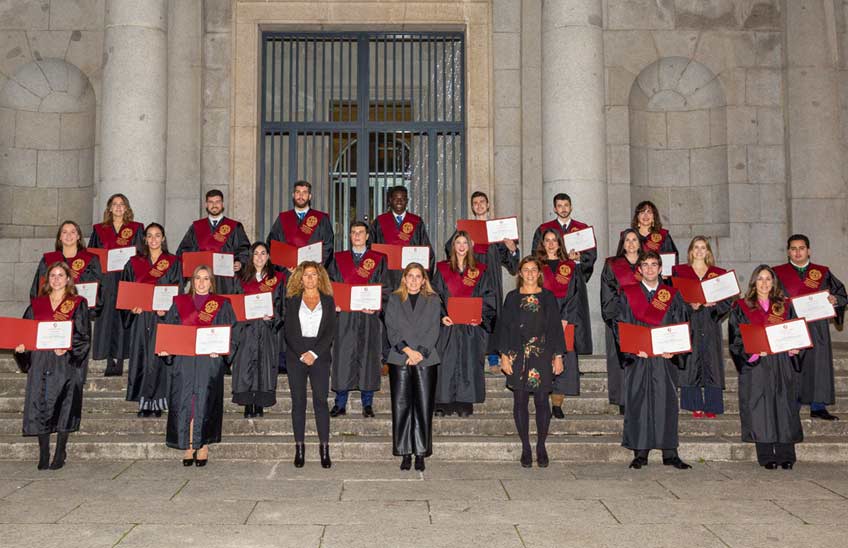The 31st graduating class of the Master's Degree in Research, development and Innovation of Medicines graduates
The closing lecture was at position by Teresa Ramos, head of personalized medicine at Roche Farma.

14 | 01 | 2022
The 24 students that make up the XXXI promotion of the Master's Degree in research, development and Medication Innovation (MIDI) celebrated last December 17 the graduation ceremony with which the academic program ends.
After some words of welcome by Professor Silvia Pérez, director of the Master's Degree, the closing lecture entitled "Personalized medicine: beyond the drug", was given by Teresa Ramos, head of personalized medicine at Roche Farma, at position . During her speech, she explained that personalized medicine is based on the research to improve the diagnosis of patients and the development of new drugs. In this regard, she pointed out that Spain is the second country in the world recruiting candidates for clinical trials, behind only the United States, with more than 17,000 patients and 198 trials in 220 hospitals at present.
"However, the development of new molecules is not easy and fast, as the healthcare system is increasingly costly, derived from the increase in life expectancy and that more and more diseases can become chronic," he commented. "Moreover, we cannot forget that each molecule requires an investment of more than 1.3 billion and a average of eight years from research. This, together with the fact that the medical knowledge doubles every 73 days, makes innovative levers necessary to make the entire healthcare system more efficient for the benefit of patients."
The future is in technology, data and analytics.
To this end, Teresa Ramos advocated a trend that, she said, will be predominant in a few years: putting the patient at the center and playing an active role in decision making about his or her disease. To this end, she pointed out the need for a technological development that allows both the disease and the patient to be known, as well as the collection of well-structured data to analyze them and establish a strategy adapted to the patient's status .
"In this context, pre-diagnosis plays a fundamental role, which would have a direct impact on the response to treatments and on people's health and lives, since we could anticipate diseases or identify them in the early stages," he explained. Thus, diagnosis could take place in a more complete way and at all levels, which would speed up treatment, making it more effective and comprehensive, and would make it possible to obtain a greater amount of data to establish predictive models. "In this way, more explosive monitoring would be possible in a shorter deadline time, which, thanks to digital tools, biomarkers, genomic sequencing... would in turn lead to better pre-diagnosis."
Tools for professional maturation
For her part, Professor Silvia Pérez, director of Master's Degree, thanked all the students for their ability to adapt in a period marked by the uncertainty of the health crisis: "It is a skill that is especially valuable at this time, but which you will have to maintain throughout your professional life". "You have spent ten months at Campus in Pamplona and another six months at Departments at the University, companies... You already have the tools, because we have spared neither human nor material resources to ensure you an excellent training. Now it is up to you to put them at the service of others," he said.
The ceremony ended with the words of the dean of School of Pharmacy and Nutrition, María Javier Ramírez, who defined the graduation as the "end of a stage core topic in the maturing staff and professional development of the students". "These months have gone by very quickly for everyone, but I would like to think that they have also been transformative. The hallmark of the University is the individual concern for each of our students, so I am sure that all the professors at Master's Degree have tried to get the best and in the best possible way from each of you."
